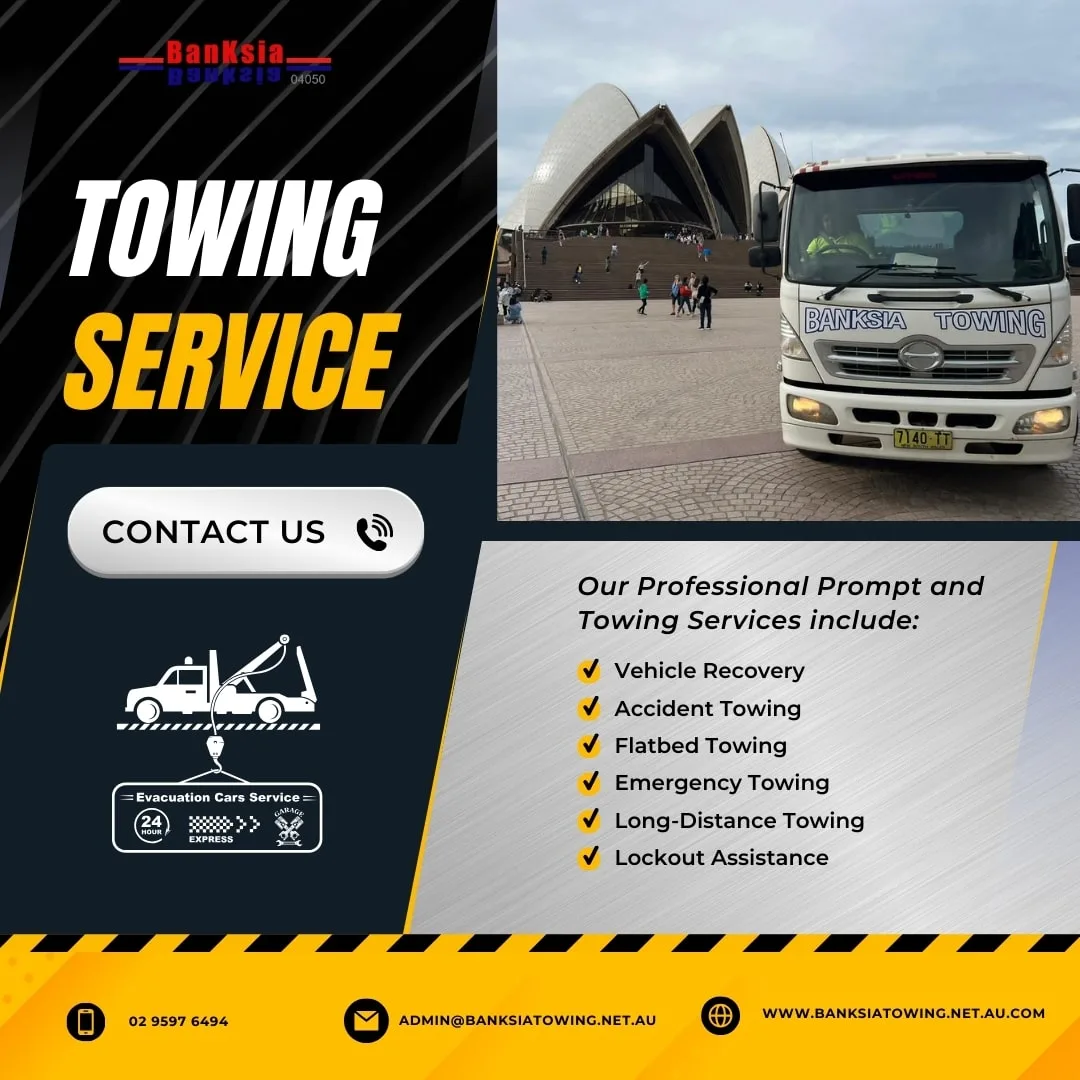7 Fundamental Tips For Car Engine Care
7 Fundamental Tips For Car Engine Care
Introduction
The engine in the vehicle acts as the center, just like the heart in your body. As much as you value your own health, maintaining the health of your engine is essential to the smooth running of your car. The principles of engine care will be covered in detail in this extensive guide, which will cover everything from normal maintenance to professional advice. We are here to give you the information you need to start the road of maintaining the optimal performance of your engine. To ensure peak performance, let’s examine the nuances of engine health.

The Fundamentals of Engine Care: A Guide by Banksia Towing in Sydney
At Banksia Towing in Sydney, we understand the significance of proper engine care for your vehicle’s performance and longevity. In this blog post, we’ll delve into the fundamentals of engine care, ensuring your car remains in optimal condition while navigating the streets of Sydney.
1. Regular Towing Service Check-ups
Regularly schedule towing service check-ups to ensure your vehicle’s engine is in top-notch condition. Our expert team at Banksia Towing is equipped to provide thorough inspections, identifying potential issues before they escalate.
2. Emergency Towing Assistance
In times of engine breakdowns or accidents, our emergency towing services come to your rescue. Prompt towing ensures minimal damage to your engine and a swift resolution to your roadside woes.
3. Engine-Friendly Towing Equipment
Our towing fleet is equipped with state-of-the-art, engine-friendly towing equipment. We prioritize the safety of your vehicle’s engine during transit, utilizing technology that minimizes stress on the engine components.
4. Temperature-Controlled Towing
Extreme temperatures can impact your engine’s health. Our towing services take extra precautions during hot Sydney days, ensuring temperature-controlled towing to prevent overheating.
5. Collaboration with Auto Repair Shops
Banksia Towing collaborates with reputable auto repair shops in Sydney. We ensure that your vehicle receives top-notch engine care post-towing, with access to expert mechanics and genuine spare parts.
6. Prompt Response Times
Engine issues require swift attention. Our towing services guarantee prompt response times, getting to you quickly to address engine-related concerns and transport your vehicle efficiently.
7. Regular Maintenance Tips
Stay informed with our blog posts and social media updates that provide regular maintenance tips. We believe in empowering our clients with knowledge on how to care for their engines between towing service appointments.
At Banksia Towing, we go beyond towing – we prioritize the well-being of your vehicle’s engine. Trust us for reliable towing services in Sydney that ensure your engine remains in prime condition. Contact us today for all your towing needs.

Welcome To Banksia Towing
Welcome to Banksia Towing, where quality and dependability coexist on Sydney’s streets. becoming a top towing company, we take pleasure in becoming your reliable support system in an emergency. Beyond only towing, we also put your car’s safety and wellbeing first, especially the engine, which powers the entire car. Modern equipment, a customer-focused attitude, and an experienced team of specialists mean that Banksia Towing makes sure your trip goes on without a hitch even in the event of unplanned engine problems. Discover Sydney’s streets with assurance, knowing that Banksia Towing is there to support you with excellent towing services and a commitment to engine maintenance basics.
Why Choose Towing Banksia?
- Dependable and knowledgeable team
Our crew is made up of knowledgeable experts with years of towing and auto repair expertise. The security and health of the engine of your car are our top priorities.
- Modern Technology Equipment
Banksia Towing makes investments in state-of-the-art towing machinery made to move cars with the greatest care and least amount of engine damage.
- Availability Round the Clock
Problems with engines can occur at any time. We provide assistance anytime you need it, day or night, with our round-the-clock towing services.
- Clear and Simple Pricing
We at Banksia Towing support open and honest pricing. Just dependable service at a reasonable price; no additional costs.
- A Customer-First Mentality
Your demands are our first concern because of our customer-centric approach. With each towing service, we aim to go above and beyond your expectations.
For reliable towing services in Sydney that put the health of your car’s engine first in addition to getting you where you need to go, rely on Banksia Towing. For any of your towing requirements, contact us right now.

Conclusion
The condition of your engine is crucial to a trouble-free driving experience. You’ve learned a lot about maintaining and maximizing the performance of your engine by reading this comprehensive tutorial. To ensure the longevity of your engine, keep in mind that cautious driving practices and routine maintenance are essential. If you maintain your engine’s smooth operation, it will provide dependable service for many kilometers. For all types of towing services in Sydney, get in touch with Banksia Towing. For more updates, make sure to follow us on Facebook and Instagram.
FAQs (Frequently Asked Questions)
Q: How often should I change my engine oil?
A: Generally, it’s recommended to change your engine oil every 3,000 to 5,000 miles, but always refer to your vehicle’s manual for specific recommendations.
Q: Can I use any type of oil for my engine?
A: No, it’s essential to use the oil recommended in your vehicle’s manual to ensure proper lubrication and performance.
Q: What should I do if my engine overheats?
A: If your engine overheats, pull over safely, turn off the engine, and wait for it to cool down. Do not attempt to open the radiator cap while it’s hot.
Q: How can I improve my fuel efficiency?
A: To improve fuel efficiency, maintain your vehicle, keep tires properly inflated, and drive smoothly without aggressive acceleration or braking Ensure Your Engine Health.
Q: Are engine additives safe to use?
A: Most engine additives are safe when used as directed. However, consult your vehicle’s manual and follow product instructions Ensure Your Engine Health
Q: What is the lifespan of a timing belt?
A: Timing belts typically last between 60,000 and 100,000 miles, but this can vary by vehicle. Refer to your manual for the manufacturer’s recommendations Ensure Your Engine Health.

